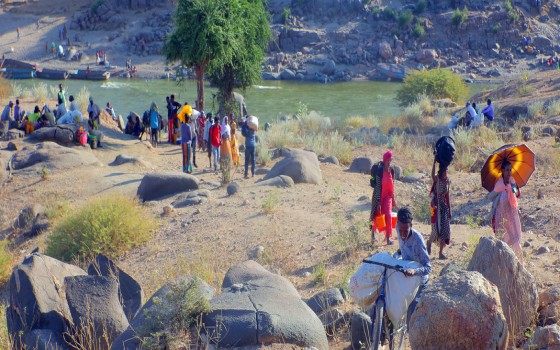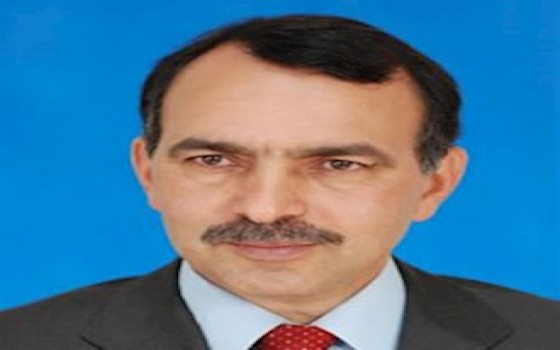
Food loss .....Preparation Dr. Abdel Moneim Sidqi Professor at the Agricultural Research Center - Egypt

- Europe and Arabs
- Sunday , 14 January 2024 15:45 PM GMT
We must stop food loss and waste for the sake of people and for the sake of the planet. Reducing food loss and waste is extremely important in a world that has witnessed a rise in the number of hungry people since 2014, as many tons of edible food are lost and wasted every day, and eliminating food loss and waste causes... Emissions of greenhouse gases, which increase the consequences of climate change. Wasting food means wasting the public and private economy, and not making optimal use of wasted food to feed the poor means wasting social and human relations, which contributes to increasing poverty and hunger.
Food loss is the reduction in the quantity or quality of food along the food chain from harvest until the food product reaches the consumer. Although there is an economic loss, food or inedible parts of food products that are converted for other uses, such as animal feed, are not considered a loss. The Food and Agriculture Organization estimates that about 30% of the world’s food is lost annually. Losses include grains, legumes, fruits, vegetables, meat, animal products, roots, tubers and agricultural crops. Food loss and waste have reached 1.3 billion tons annually, or one third of the total food produced globally, despite the fact that there are about 800 million people in the world who suffer from hunger.
Approximately 68% of the losses occur during food production, handling, processing and distribution, meaning that there are large losses in quantity and quality before the food reaches the consumer due to poor harvesting techniques and the lack of refrigerated storage infrastructure, in addition to appropriate means of transportation, poor handling, exposure to heat and sunlight, and weak marketing systems and regulatory framework. It is noted that A large percentage of losses occur during religious holidays, weddings, family gatherings, and in the hospitality sector such as hotels and restaurants.
The food value chain must be developed to reduce food loss, focus on the post-harvest, processing and marketing period, and enhance the adoption of value chains by analyzing the rates of food waste throughout the value chain and its causes, and developing a tracking system to monitor waste rates and support post-harvest, value added, processing and marketing activities. By increasing the technical and administrative capabilities of the active parties in the food value chain, starting with smallholder farmers, agricultural workers, merchants and manufacturers, in addition to civil society organizations and civil society associations, to reduce loss in the food value chain while adopting good technical practices related to food safety and quality to reduce food loss by Stakeholders in the value chain and focusing on small and medium agricultural companies
There is a need to organize awareness campaigns about waste rates and their effects. These campaigns aim to increase the demand for higher quality products, support the availability of access to market-related information, participate in training, support the existence of vertical linkages between small farmers, traders, transport, and buyers, introduce value-added activities, and provide a package of technical support. It is important to involve stakeholders in the value chain of various crops, especially smallholders, small traders, small and medium agricultural companies, in addition to cooperatives, associations, local communities, and service providers to the food chains in question.
The issue of food waste requires spreading awareness and culture in society to modify some inherited behaviors and spread the culture of home and family economics by determining quantities when preparing food and its impact on the individual and family budget and doubling the efforts currently being made to collect food waste and utilize it to feed other groups of society.












No Comments Found